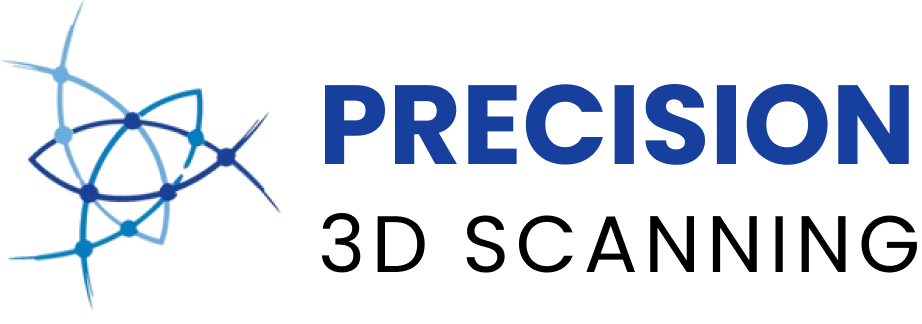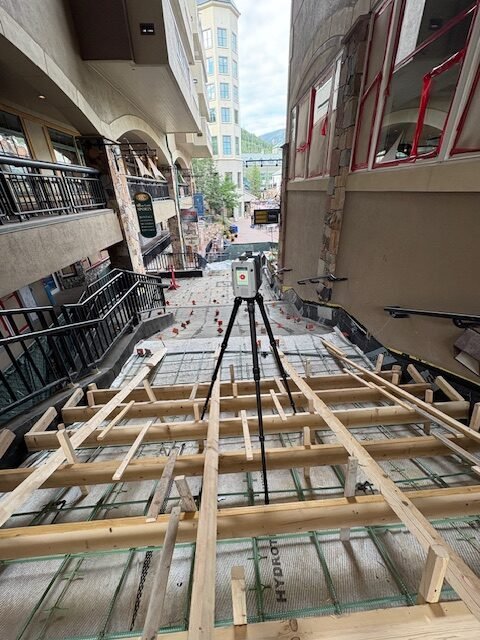Why LiDAR Scanning for Metal Fabrication in Denver Matters
In metal fabrication, accuracy determines whether a project succeeds or fails. Even a small error in measurement can cause parts to misalign. That leads to wasted materials, costly delays, and lost productivity. Complex shapes, curves, and sloped surfaces make precision even harder to achieve with traditional tools.
For fabricators in Denver, these challenges occur often on both custom and commercial projects. LiDAR scanning for metal fabrication Denver solves the problem. It captures site conditions in exact detail and turns them into files ready for the shop. As a result, components fit perfectly the first time and deadlines stay on track.
The Measurement Problem in Metal Fabrication
Fabricators know that measuring is one of the riskiest parts of the workflow. Manual tools can create small errors that become much larger during fabrication and installation. If a part does not fit correctly, the team must either adjust it on-site or make it again. Both options cost time and money.
Curved railings, unique metal features, and projects in tight spaces make accurate measurement even more difficult. Each extra site visit adds cost and slows the project. In Denver’s competitive market, those delays can mean losing future bids. Therefore, finding a better way to capture site data is essential.
How LiDAR Scanning Works
LiDAR stands for Light Detection and Ranging. It measures distances by sending out laser pulses and timing their return. This process creates a detailed, three-dimensional map called a point cloud. You can explore the fundamentals of LiDAR. Its accuracy, applications across industries, and how it works in this comprehensive overview on Wikipedia.https://en.wikipedia.org/wiki/Lidar
With a Leica RTC360 scanner, a site can be recorded in minutes. Multiple scans are combined to form a single, accurate model. This model captures every slope, curve, and angle. As a result, the shop works from a complete digital representation of the site. The data integrates with CAD, CAM, or CNC workflows, which makes it perfect for metal fabrication.
From Scan to Fabrication-Ready File
The LiDAR workflow begins with scanning the project site from several positions. This approach ensures that every detail is captured from multiple angles. Once the scanning is complete, the data is registered into one model that reflects real-world conditions.
Next, the area needed for fabrication is isolated. Removing unnecessary elements keeps the file small and focused. After that, the surface is converted into a solid STP file. Because STP files work with most fabrication and machining programs, they can be used immediately.
By the time the file reaches the shop, it is ready for design and cutting. Consequently, the fabrication process moves forward without delay.
The Benefits of LiDAR Scanning for Metal Fabrication Denver
LiDAR scanning for metal fabrication improves accuracy and reduces rework. With exact site data, fabricators avoid most of the problems caused by measurement errors. This means projects move faster, and fewer materials are wasted.
Another major benefit is the reduction in site visits. The entire project can often be measured in a single trip. As a result, fabrication can begin sooner, and clients enjoy faster turnaround times. Satisfied customers often become repeat customers, which builds long-term business growth.
When LiDAR Delivers the Most Value
LiDAR scanning can help almost any fabrication project. However, it delivers the most value when geometry is complex, deadlines are tight, or the work is highly visible. Custom staircases, curved architectural elements, and intricate railings are just a few examples.
In these situations, manual measuring is slow and unreliable. LiDAR gives the fabrication team a complete and accurate picture from the start. That means the design matches the site exactly and installation goes smoothly.
Choosing the Right LiDAR Partner
To get the most from LiDAR, Denver fabricators should work with a scanning partner who understands fabrication. The right partner provides clean, accurate data in the correct formats. They scan with tolerances in mind, ensuring the files work immediately in the shop.
At Precision 3D Scanning, we have experience in both construction and fabrication. We know how to prepare data so that it integrates directly into your process. That knowledge reduces wasted time and prevents costly errors.
Real-World Example: A Complex Walkway
Imagine a long, curved walkway with changes in elevation. Measuring it by hand could take days, and the results might still be inaccurate. By using LiDAR scanning, the entire walkway can be captured in less than an hour.
The scan becomes a 3D model, which is then converted into a solid STP file. The fabrication team can start work immediately, confident the parts will fit perfectly. This process saves time, reduces costs, and improves the final result.
Integrating LiDAR into Fabrication Workflows
LiDAR scanning replaces incomplete sketches and photos with a full, accurate model. This makes design faster, fabrication more precise, and installation easier. General contractors can trust that subcontractors have the exact data they need. Architects see their designs translated accurately to the built environment.
For projects that also require verification of concrete surfaces before fabrication begins, our Concrete Elevation Heatmaps service provides a detailed analysis of slab flatness and slope. This ensures the base structure meets specifications before any metalwork is produced.
Long-Term Value of LiDAR
LiDAR scans can be stored and used for future projects. This is useful for modifications, repairs, or upgrades, as the original scan serves as a permanent record. The time saved on future work adds to the value of the initial scan.
For projects that need integration into full 3D building models, our Scan-to-BIM services create editable models in Revit and other BIM software. As a result, collaboration between architects, engineers, and contractors becomes more efficient.
Serving Metal Fabrication Projects from Coast to Coast
While many of our projects are based in Denver, our capabilities extend across the entire United States. Precision 3D Scanning provides the same level of accuracy, speed, and fabrication-ready deliverables whether your project is in a major metropolitan area or a remote job site.
We can work with fabrication teams, contractors, and architects from coast to coast. By combining advanced LiDAR technology with efficient data transfer methods, we can scan your site, process the data, and deliver shop-ready STP files anywhere in the country. This means you get the same precision and fast turnaround times, no matter your location.
Our nationwide service allows fabrication teams to access reliable as-built data without travel delays or scheduling bottlenecks. Whether you are on the East Coast, West Coast, or anywhere in between, we ensure your project benefits from the same proven process that delivers results in Denver.
From Scan to Solid in Denver
LiDAR scanning for metal fabrication offers unmatched accuracy, speed, and efficiency. It closes the gap between as-built conditions and shop-ready files. With fewer errors, less waste, and faster delivery, this technology helps fabricators deliver better results and keep clients happy.
If your project demands exact fit and high efficiency, LiDAR is the solution. Contact Precision 3D Scanning today to learn how our process can improve your next fabrication project.

